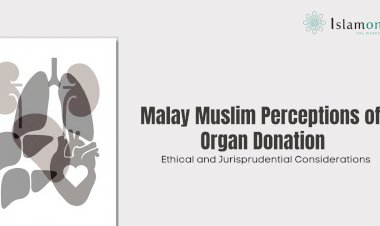Islamic Index of Vital Virtues in the Healthcare Sector
Notwithstanding the tremendous inroads that humanity has achieved in the quality of life and ease in efforts in the wake of the technological revolution, we cannot overlook the fact that the sanctity of the human species, the rights and duties of fellow beings, and the values have, more or less, deteriorated.[1] Without exception, all cultures and religions promote the inviolability of human life and the aspects of its protection and prevent the risks of any harm.
Health and medicine are looked up to with greater importance than ever in modern times. This field carries a great deal of sensitivity as healthcare demands intimate engagement and the intensive nature of relationships. Also, many of the issues therein are entwined with religious and cultural components.
The role and relevance of virtues in the healthcare sector are undeniable as the customer becomes extremely vulnerable and appears helpless to an extent but accepts whatever his or her doctor demands. If not for ethics and virtues to guide the healthcare professional, no other channel can direct the mode of action and repair the consequences which ensue therein.
Compelling virtues are requirements for any decent society. Seven virtues are particularly important in the medical scenario; they are integrity, compassion, discernment, trustworthiness, conscientiousness, fidelity and veracity.[2] The following portion briefly describes each.
- Integrity: In Arabic, integrity is translated as nazāhah and istiqāmah. This virtue requires soundness, reliability, wholeness, and integration of moral character. Fidelity in adherence to moral norms is an important feature. The Quran says, “Stay firm on the Right Way as you are commanded” (al-Shūrā: 15). This quality bars professionals from hypocrite, insincere, unfaithful and self-deceptive approaches, actions and treatments. In the view of some ethicists, integrity is a prime virtue for all professionals in healthcare. Non-disclosure of secrets is counted among the integrity of a virtuous person.[3]
- Compassion: The principle of compassion requires individuals to be entitled with commendable features such as concern for the welfare of others, emotional reactions to the facts, sincere sympathy, and sorrow for the misfortune of others.[4] These qualities are highly anticipated by patients from healthcare professionals. If the main consideration of integrity is self-improvement, the focus of compassion lies in the well-being of others. However, misplaced compassion and excessive emotional involvement might adversely affect the delivery of effective care. Underlining this principle, the Prophet ﷺ says, “Show compassion to those on earth, the One in the heavens will show mercy upon you” (Al-Tirmidhī, Sunan al-Tirmidhī,1843).
- Discernment: The principle of discernment refers to having the qualities of sensitive insights, acute judgment, comprehension of outputs, practical wisdom, proper decision-making and consideration of rules and standards of the matters. These qualities are conducive to eliminating extraneous considerations, fears, personal feelings and the like. The Prophet says, “Whoever medicates while he does not know about medicine, he is accountable (for mistakes)” (Abū Dā’ūd, Sunan Abī Dāwūd, 4: 195). In line with this ḥadith, the jurists from four Sunni madhāhib have emphasized the liability of doctors for their mistakes and wrong prescriptions.[5]
- Trustworthiness: Trust means confident belief and reliance upon the moral character and competence of another person.[6] In healthcare, patients trust that the professionals will behave to the highest standards and place the interests of patients over their interests. Allah says, “God bids you deliver all that you have been entrusted with unto those entitled thereto.” (al-Nisā’: 58).
- Conscientiousness: An action becomes conscientious if the agent is motivated by the right action with due diligence in determining the action with a pure intention to achieve right. Principled commitment is one of the core elements of conscientiousness. The Quran says, “Persevere in patience and constancy” (Ᾱl-Imrān: 200).
- Fidelity: To maintain ideal relationships between the patient and a physician, fidelity is a core virtue that carries the values of loyalty and trust than just being true to one’s word.[7] Confidentiality observance is significant evidence of fidelity. The Prophet says, “When an employee fulfils obligations of Allah and obligations of his employer, he has two rewards for him” (Muslim, books 15, chapter 11, No. 4100).
- Veracity: This virtue is a mixture of candor, honesty and truthfulness, counted in higher qualities of a healthcare professional.[8] In the medical fraternity, veracity refers to the comprehensive, accurate, and objective acumen to deliver information and develop a patient’s understanding. Veracity reflects the ideas of respect owed to others, fidelity, trust and keeping promises. It is a prima facie obligation, and so is reconsidered if any competing obligation conflicts with it.[9] The Prophet says, “Verily, truthfulness leads to righteousness (birr), and righteousness leads to the Garden” (Muslim, Ṣaḥīḥ Muslim, 8: 29).
(Sayyed Mohamed Muhsin is an assistant professor of Islamic jurisprudence at International Islamic University (IIUM), Kuala Lumpur. He also serves as Editor-in-Chief of Islamonweb-English)
[1] J. K. Mason and G. T Laurie, Law and Medical Ethics (UK: Oxford University Press, 8th edn., 2011), 1.
[2] Beauchamp, T., & Childress, J. 2009. Principles of biomedical ethics. 6th edn. New York: Oxford University Press.
[3] Post, S. G., & Byrne, J, “Compassionate Care”, The Journal of IMA, vol. 43 no. 3 (2011) 148–159. http://doi.org/10.5915/43-3-9219.
[4] Lawrence Blum, “Compassion”, in Explaining Emotions, ed. Amelie Oksenberg Rorty (Berkeley: University of California Press, 1980), 208.
[5] Muḥammad bin Ghānim, Majmaʿ al-Ḍamānāt (Cairo: al-Maṭbaʿat al-Khayriyyah al-Mansha’at bi Jamāliyyah, 1308 AH), 48; Muḥammad ʿArafah al-Dasūqī, Ḥāshiyat al-Dasūqī ʿalā al-Sharḥ al-Kabīr (Beirut: Dār al-Kutub al-ʿIlmiyyah, 1417 AH), 4: 28; ʿAbd al-Raḥmān al-Shīrāzī, Nihāyat al-Rutbah fī Ṭalab al-Ḥasbah (Beirut: Dār al-Thaqāfah, 1989), 89; Abū Muḥammad bin Qudāmah, al-Mughnī (Cairo: Maktabat al-Qāhirah, n.d.), 538.
[6] Due to several reasons, this virtue has eroded in modern healthcare and its repercussions are evident in the efficiency of healthcare. Beauchamp and Childress, Principles of Biomedical Ethics, 2001: 34.
[7] Edmund Pellgrino, “Altruism, Self-Interest, and Medical Ethics”, Journal of American Medical Association 258 (1987): 1939-40.
[8] G. J. Warnock, The Object of Morality (London: Methuen, 1971), 85.
[9] W.D. Ross, The Right and the Good (Oxford: Clarendon Press, 1930), 2.
Disclaimer
The views expressed in this article are the author’s own and do not necessarily mirror Islamonweb’s editorial stance.
























Leave A Comment